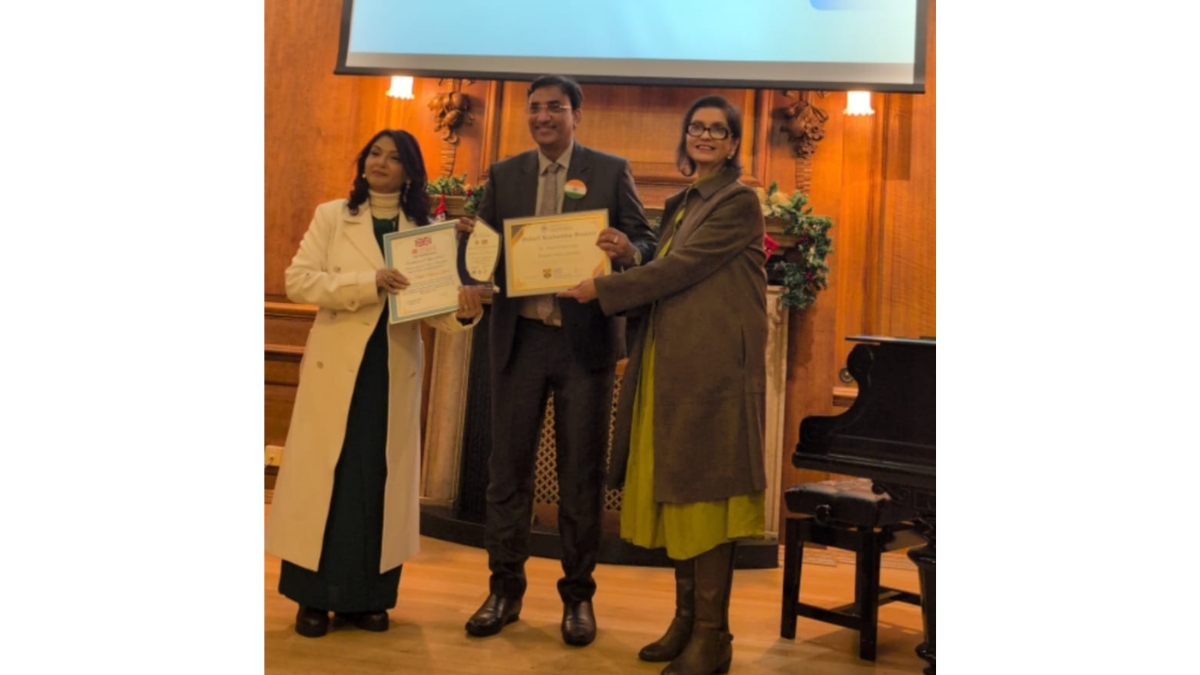
Bengaluru (Karnataka) [India], June 5: Dry age-related macular degeneration (dry AMD) is the largest cause of incurable blindness in the world for patients over 50 years. 170 million people suffer from this disease around the world, 25 million of which are in India. These numbers will, unfortunately, increase in the coming decades as our population ages. The more severe version of dry AMD is geographic atrophy, and no therapy is available to arrest or reverse this loss of vision.
Eyestem Research today announced the submission of an Investigational New Drug (IND) application to the Central Drugs Standards Control Organization, India (CDSCO) to begin first-in-human trials of Eyecyte-RPEfor subjects with medium- and late-stage geographic atrophy, secondary to dry AMD.
Dr. Rajani Battu, Chief Medical Officer of Eyestem Research, said, “We are excited to start human trials for Eyecyte-RPE. Dry AMD is a huge disease burden, and this therapy has the potential to make a meaningful difference in our patient’s lives.”
Dr. Jogin Desai, Chief Executive Officer of Eyestem Research, said, “Most cell and gene therapy products under development in the West are estimated to cost over US$ 200,000.Our vision is to democratize access to such treatments at a fraction of these costs and begin disruption of the current status quo with our Eyecyte-RPE product.”
Eyestem Research is a deep science company incubated at the Centre for Cellular and Molecular Platforms, Bangalore, and supported by DBT-BIRAC as well as prestigious Indian and global healthcare investors. The IND submission for Eyecyte-RPEis supported by robust GLP toxicology data from Dabur Research Foundation in India and excellent efficacy/safety data in animal models at Oregon Health and Science University. Validation of the injection technique and dose-finding studies were done in advanced animal models at the Singapore Eye Research Institute.
About Eyecyte-RPE
Eyecyte-RPE is a patented suspension of iPSC-derived fate-committed retinal pigment epithelium cells, which are highly potent, safe, and efficacious in in-vitro and in-vivo studies. The cells are derived from induced pluripotent stem cells, are allogeneic in nature, and can be stored for long periods of time.
is a patented suspension of iPSC-derived fate-committed retinal pigment epithelium cells, which are highly potent, safe, and efficacious in in-vitro and in-vivo studies. The cells are derived from induced pluripotent stem cells, are allogeneic in nature, and can be stored for long periods of time.
If you have any objection to this press release content, kindly contact pr.error.rectification[at]gmail.com to notify us. We will respond and rectify the situation in the next 24 hours.
The post Eyestem files for IND approval for its product to treat geographic atrophy, the largest cause of incurable blindness in the world for people over 50 first appeared on PNN Digital.



